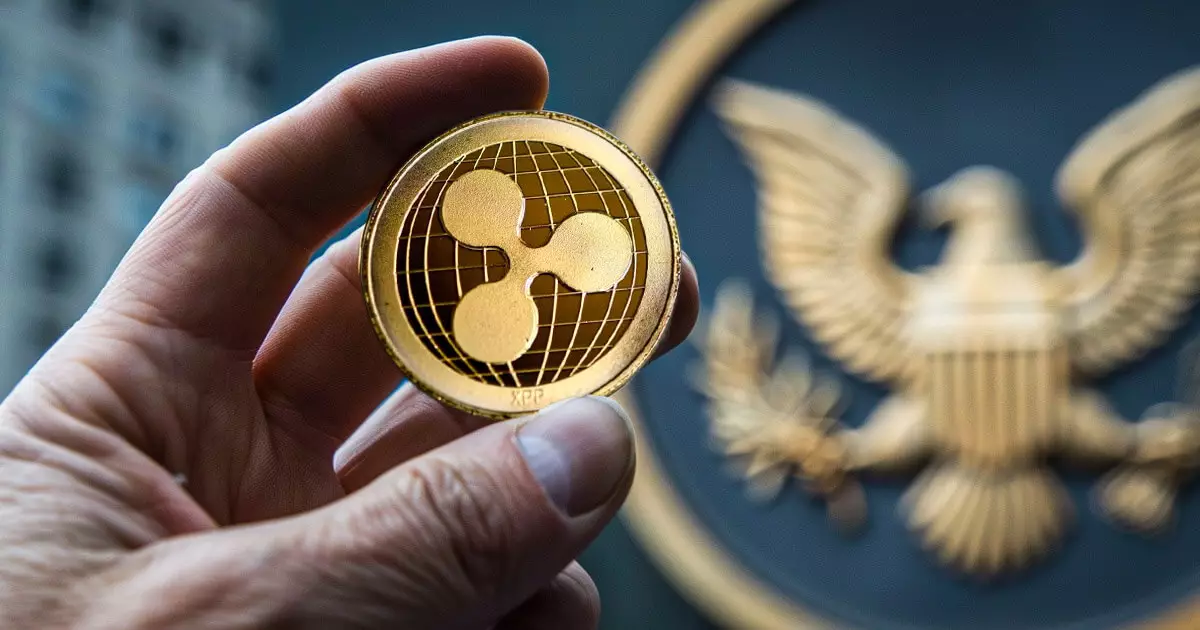The ongoing legal conflict between Ripple Labs and the U.S. Securities and Exchange Commission (SEC) marks a significant chapter in the evolution of cryptocurrency regulation. On October 10, 2023, Ripple Labs filed a notice of cross-appeal in response to the SEC’s appeal of a recent court ruling regarding the status of its XRP token. This latest move adds another layer of complexity to a case that has been a focal point of discussion in the cryptocurrency community since the SEC initiated its legal action in 2020.
The crux of the SEC’s allegations against Ripple stems from claims that the company participated in the unlawful offering of unregistered securities through its XRP token, amassing around $1.3 billion in the process. Ripple’s position is that programmatic sales—those conducted through digital exchanges—do not qualify as securities transactions under U.S. law. In July 2023, Judge Analisa Torres of the U.S. District Court for the Southern District of New York delivered a split decision. She ruled that while Ripple’s institutional sales did violate securities laws, sales directed at retail investors did not. This decision was hailed as a partial victory for Ripple, yet it also imposed a civil penalty of $125 million, significantly lower than the $2 billion the SEC originally sought.
The cross-appeal filed by Ripple is particularly noteworthy not just for its legal implications but also for its potential to shape the landscape of cryptocurrency regulation in the United States. The decision to contest the $125 million penalty signifies Ripple’s commitment to challenging the SEC’s position aggressively. Stuart Alderoty, Ripple’s chief legal officer, indicated that the aim of this cross-appeal is to ensure that all aspects of the case are scrutinized, stating that “nothing is left on the table.” The unified nature of both appeals will likely see them intertwine in the legal system, further prolonging the resolution of this critical issue.
Ripple’s management, including CEO Brad Garlinghouse, has been vocal about their belief that the SEC’s actions are more about creating chaos in the industry rather than providing clarity. Garlinghouse’s remarks reflect a broader sentiment among cryptocurrency advocates who argue that regulatory bodies need to establish clearer guidelines instead of relying on enforcement actions. By seeking to overturn the imposed penalty, Ripple hopes not just to mitigate financial repercussions, but also to affirm its stance against what it characterizes as the SEC’s overreach.
The outcome of Ripple’s legal battles may resonate well beyond just Ripple and the SEC. The case has attracted considerable attention from stakeholders across the cryptocurrency ecosystem, including investors, developers, and other companies that operate within this budding market. A definitive ruling on the status of XRP could set a precedent for how other tokens are classified under U.S. securities law. Industry analysts are keeping a close watch on the proceedings, as a decision in favor of Ripple could pave the way for more innovation and investment in the U.S. crypto landscape.
The SEC’s regulatory approach, often described as “regulation by enforcement,” may face increasing scrutiny should Ripple succeed in its legal endeavors. The legal clarifications that may arise from the eventual resolutions of these appeals could lead to a more transparent framework for cryptocurrencies, potentially alleviating the hesitations investors face when navigating regulatory uncertainties.
As the appeals process unfolds, many in the cryptocurrency industry will be watching with bated breath. Ripple’s legal strategies signal a robust defense against the SEC’s long-standing position, and the outcome of this case may well define the regulatory landscape that follows. Legal experts have also pointed out that these proceedings could inspire other cryptocurrency firms to assert their rights and challenge regulatory frameworks that they perceive as overly harsh or unwarranted.
The legal dispute between Ripple Labs and the SEC encapsulates broader themes surrounding the realization of cryptocurrency’s potential in the United States. The implications of this ongoing saga extend well beyond the courtroom, with the potential to influence future regulations, enhance clarity for industry participants, and ultimately shape the future trajectory of blockchain technologies and digital currencies. As both parties prepare for the next stages of their appeals, the cryptocurrency community remains poised for developments that could either cement existing regulations or usher in much-needed changes.


Leave a Reply